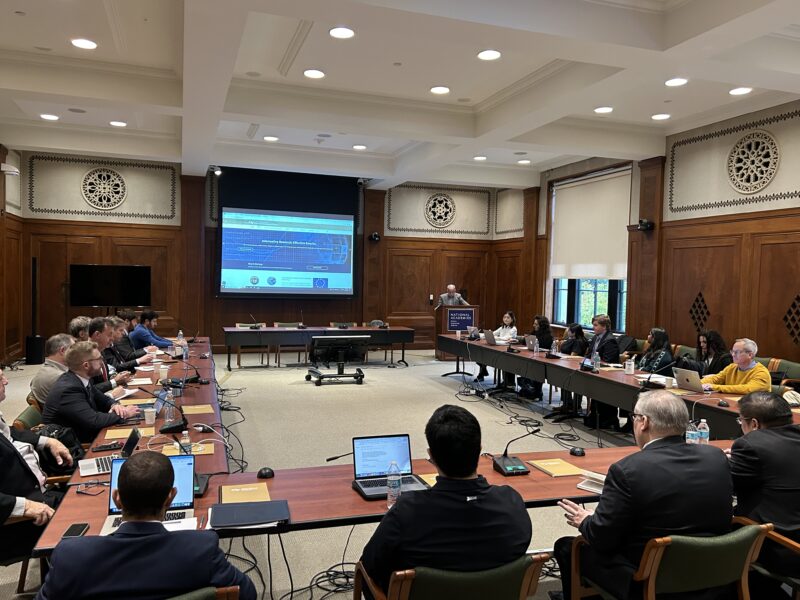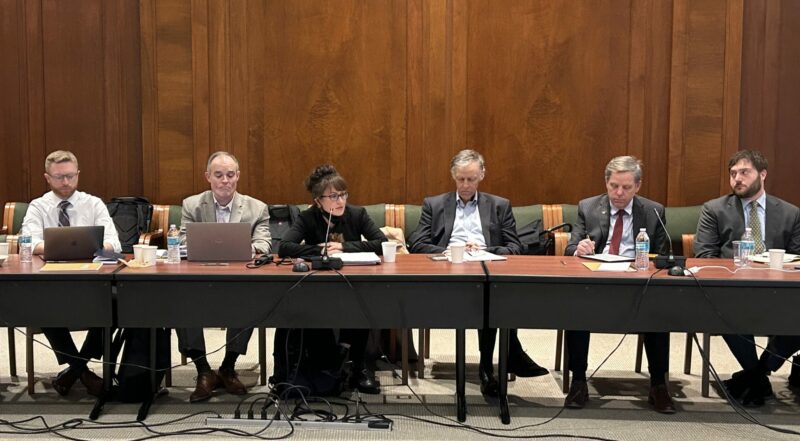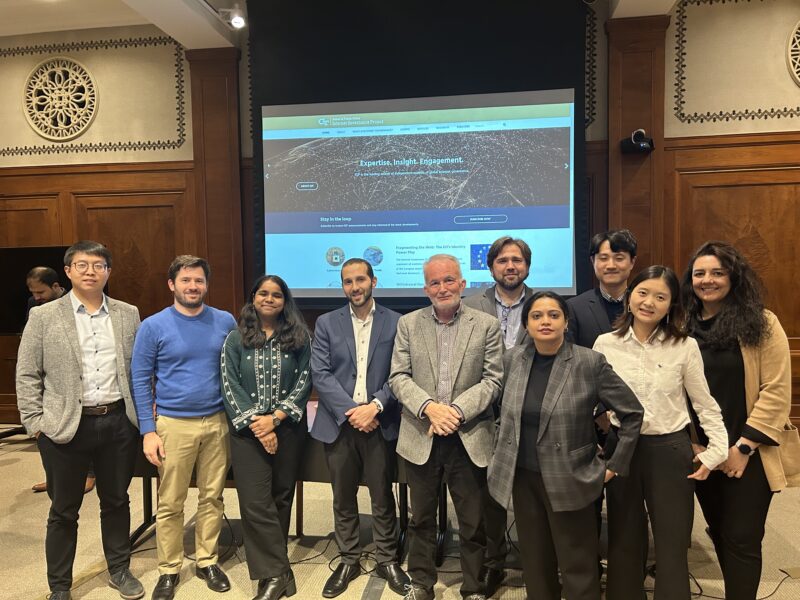Diverse Experts challenge national security rationales underlying US digital governance
Since 2016, the United States has abruptly reversed its liberal policies governing the Internet, global trade and regulation in the information and communication technologies (ICT) sector. This sea change in ICT policy rests on sweeping and largely untested claims about the relationship between the digital economy and national security.
On November 10, 2023, IGP convened a diverse group of experts at the National Academy of Sciences in the heart of Washington DC to explore and debate the fundamental assumptions behind this change. The discussions revolved around a set of questions posed by IGP’s conference organizers.

Critical Questions
The first panel was led by retired Brigadier General Greg Touhill, currently director of CMU’s CERT division; Michael Daniel, operations director of the Cyber Threat Alliance; Aimen Mir, the former chair of CFIUS; and the technical director of the CMU CERT division, Mr Matthrew Butkovic. It focused on these questions:
- Are there identifiable thresholds at which ICT products and services trigger national security concerns?
- When ICT trade with an adversary nation is simultaneously mutually beneficial and amplifies some security risks, how should the two be balanced?
- How can policymakers differentiate special interests seeking protectionism from real national security concerns?
The second panel, led by ITIF’s Robert Atkinson, Columbia University-CITI’s Dr. William Drake, and Dr. John Lash asked:
- Have we taken the benefits of open, globalized trade fully into account in reshaping ICT policies?
- Can new networked production arrangements reduce risks while maintaining the benefits of globalization?
- Does the lack of reciprocity between a more open market and a more closed one harm the open economy more than it harms the closed one?
- Are there relevant differences between ICT products trade (e.g., chips) and ICT services trade (e.g., platforms)?
The third panel, led by Dean Cheng of the Heritage Foundation with commentary from Samm Sacks of Yale’s Paul Tsai China Center and Le Tian Cheng, doctoral student at Georgia Tech, addressed these questions:
- How does the relationship between civilian and military ICT production differ in China and the US?
- Is it realistic to view the entire Chinese economy as “CCP incorporated” and weaponized for world dominance?
- Given globalized supply chains and market incentives, how meaningful is the national origin of ICT firm owners?
A panel on the costs & risks of weaponizing Interdependence, led by retired Rear Admiral David Simpson of Virginia Tech and Georgia Tech’s Peter Swire, asked:
- When does weaponizing interdependence begin to break down the networks of interdependence?
- Is the US reaction to a rising authoritarian state creating a globalized surveillance and censorship industrial complex? Is the cure worse than the disease?
- Do we have to choose between US or Chinese weaponized interdependence or is there a more balanced and mutually beneficial approach?

A final panel on the Road Ahead led by U New Hampshire’s Karl Grindal and IGP’s Karim Farhat, asked:
- How can we maintain an innovative, peaceful, globally connected digital economy in an era of great power competition?
- How can we make global interdependence more of a productive tool and less of a weapon?
The workshop also featured a framing discussion tracking the growing intrusions of national security-justified restrictions on ICT by Milton Mueller, and a keynote speech by Abraham Newman, author, with Henry Farrell, of the new book Underground Empire, How America Weaponized the Global Economy.
The organizers of this event felt that the questions above were not being asked, much less answered. As Dr Mueller put it in his opening speech,
“The new conception of national security threats has no clear definition, because it has come to embrace almost anything. Driven by panic about China’s rise, we are intervening in complex interactions between markets, politics, international relations, technology and society without any firm grasp of its systemic effects and long-term consequences. I see no scientific basis for making the cost-benefit calculus underlying this massive upheaval in our security posture. I see no historical precedent that these measures are based on, except, perhaps, for 18th century mercantilism or the clash of European empires that preceded World War 1 – and neither of those precedents led to positive outcomes. Are these measures reducing risk, or making us poorer while aggravating conflict?”

Workshop Outcomes and Goals
A summary of the proceedings of the workshop will be published soon. The academics, industry experts, policymakers, and legal scholars each participant brought a unique perspective, enriching the discussions with insights drawn from their respective fields.
As we synthesize the proceedings into a report, we hope this opening salvo will chart a course for future discussions in answering many opening questions and ultimately policy course corrections.
